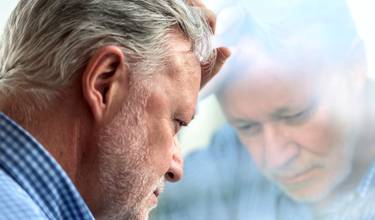What is depression?
Depression is a mental illness characterised by feelings of sadness, a loss of energy and of interest in activities once enjoyed. World Health Organisation (WHO) estimates that depression is the most common cause of decreased functionality in the western world.
What are the symptoms of depression?
Depending on the symptoms experienced by the individual, depression ranges from mild to severe. The diagnosis is made if a person has experienced for the last two weeks:
At least two of the following:
- A feeling of sadness
- Markedly diminished interest or pleasure in almost all activities nearly every day
- Reduced energy and fatigue
As well as at least two of the following:
- Reduced self-confidence or self-worth
- Feelings of worthlessness, guilt
- Thoughts about death or suicide
- Impaired concentration and thinking
- A sense of restlessness or being slowed down
- Insomnia
- Changes in appetite and weight
If an individual experiences two of the symptoms from the first list as well as two from the second one, he or she has a mild depression. It is not always necessary to treat mild depressions. As an example, seasonal affective disorders are often mild.
If a person experiences at least four of the symptoms, the depression is considered moderate. It is recommended that moderate cases of depression be treated.
In severe depression, all three symptoms from the first list as well as five of the symptoms from the second are present. Severe depressions require treatment.
What are the causes of depression?
There is rarely only one explanation as to why a person develops depression. Depression often develops as a result of an interplay between various factors, including biological, genetic, psychological, and environmental factors. Biological factors include a lack of exposure to sunlight and a low metabolic rate. Genetics are thought to play a role as well in terms of vulnerability in stressful situations such as being fired, losing a relative or falling ill, and those who develop depression often have family members who also experienced depression at some point. Additionally, environmental factors can impact the risk of developing depression, for instance an insecure childhood or other unpleasant experiences. Factors such as education, job situation, social situation and financial conditions play an important part as well.
What are the treatments for depression?
The purpose of the treatment is to treat the actual depression but also to prevent potential relapses. There are a number of different medical preparations with different effects to treat depression, but not all of these preparations are equally efficient for all patients. Sometimes the individual might not experience any effect of a preparation at all. Depression might therefore require several attempts with various preparations before an efficient and noticeable effect is achieved. Usually only moderate and severe cases of depression are treated medically.
Generally, the treatment options available today don’t have a long-term effect, which means that some severe cases of depression aren’t treatable. Therefore, treatments which are more efficient than what is available today are needed.
In addition to medical treatments, psychotherapy and conversational therapy make up possibly efficient methods for treating depression regardless of severity. Here, the individual can learn to turn around negative behavioural patterns and learn new thought patterns and life approaches, which all contribute to alleviating the symptoms significantly.
Electroshock therapy is used in the treatment of severe treatment resistant depression. Electroshock is a form of therapy where small amounts of electrical currents are sent through the head of a sedated patient, and it is thought to be efficient in treating severe and life-threatening cases of depression.


